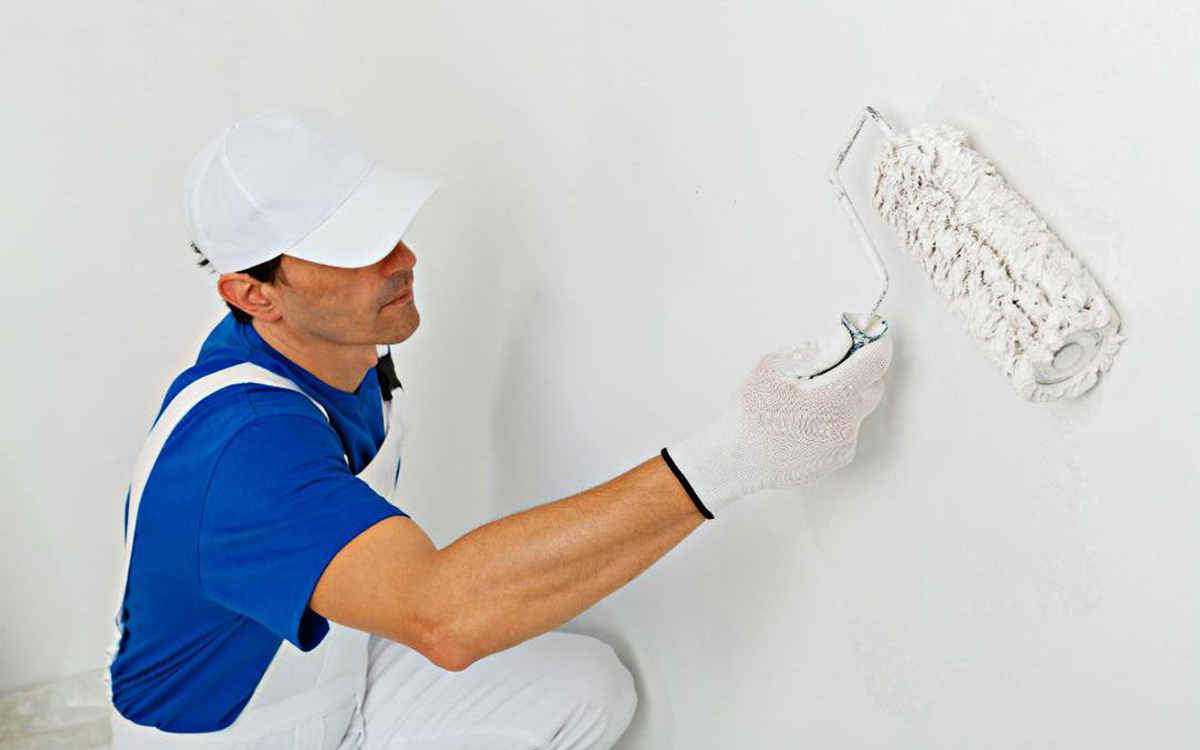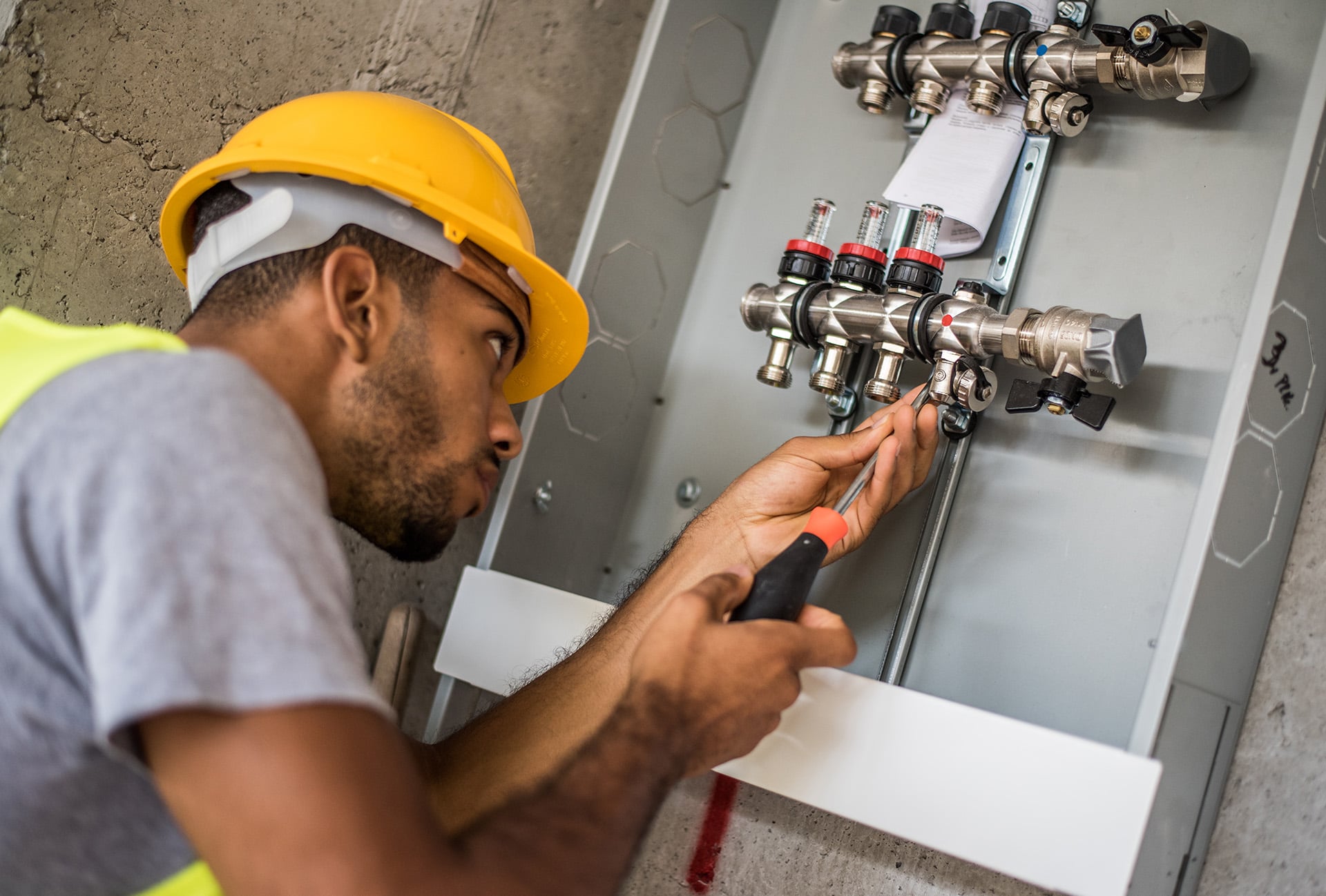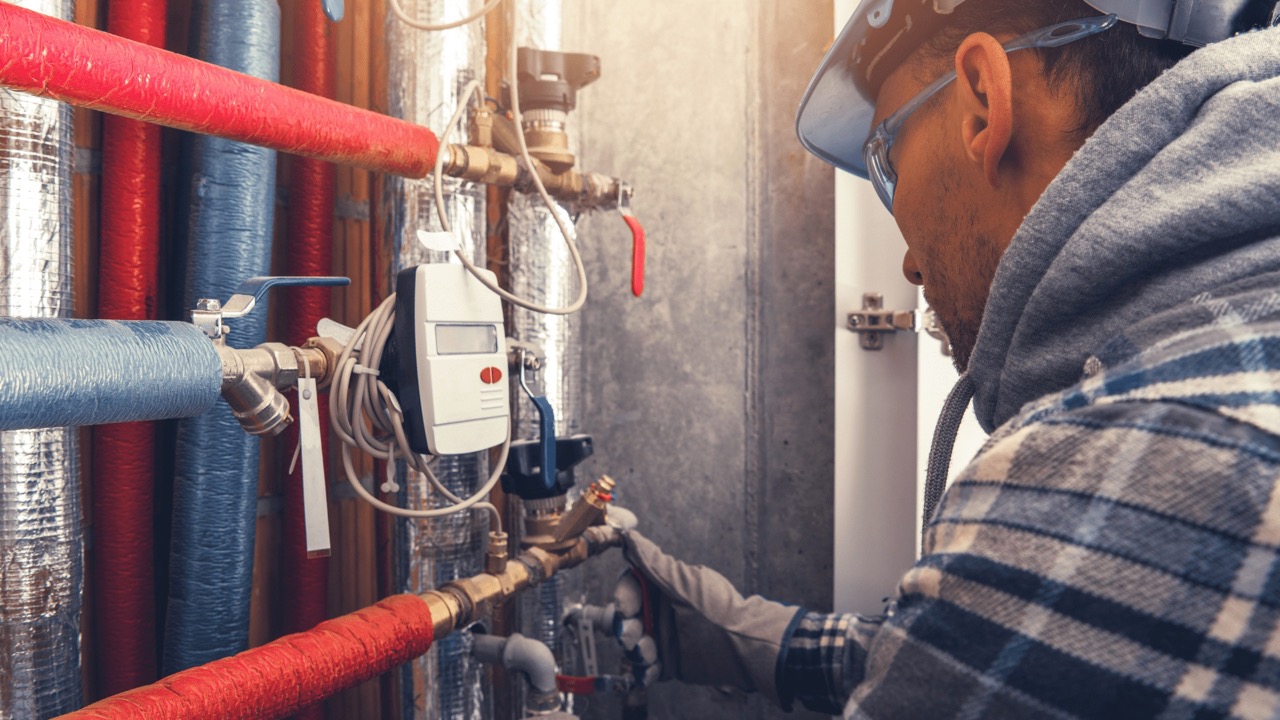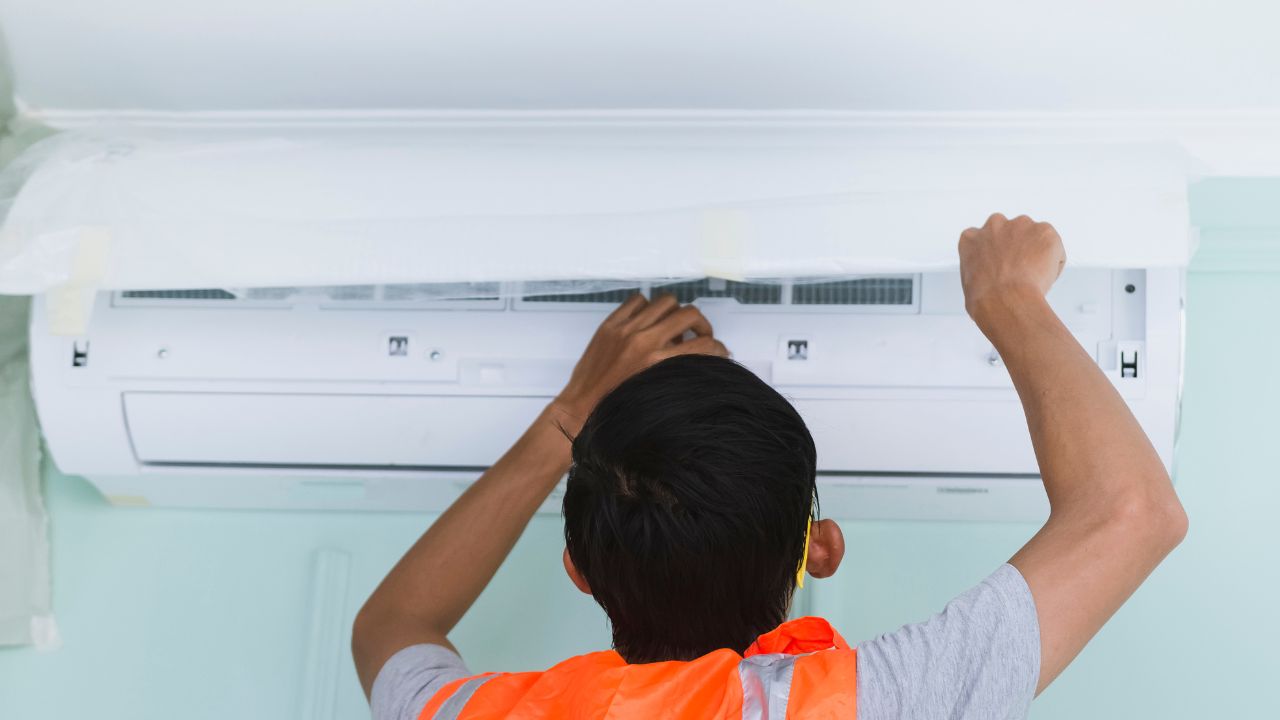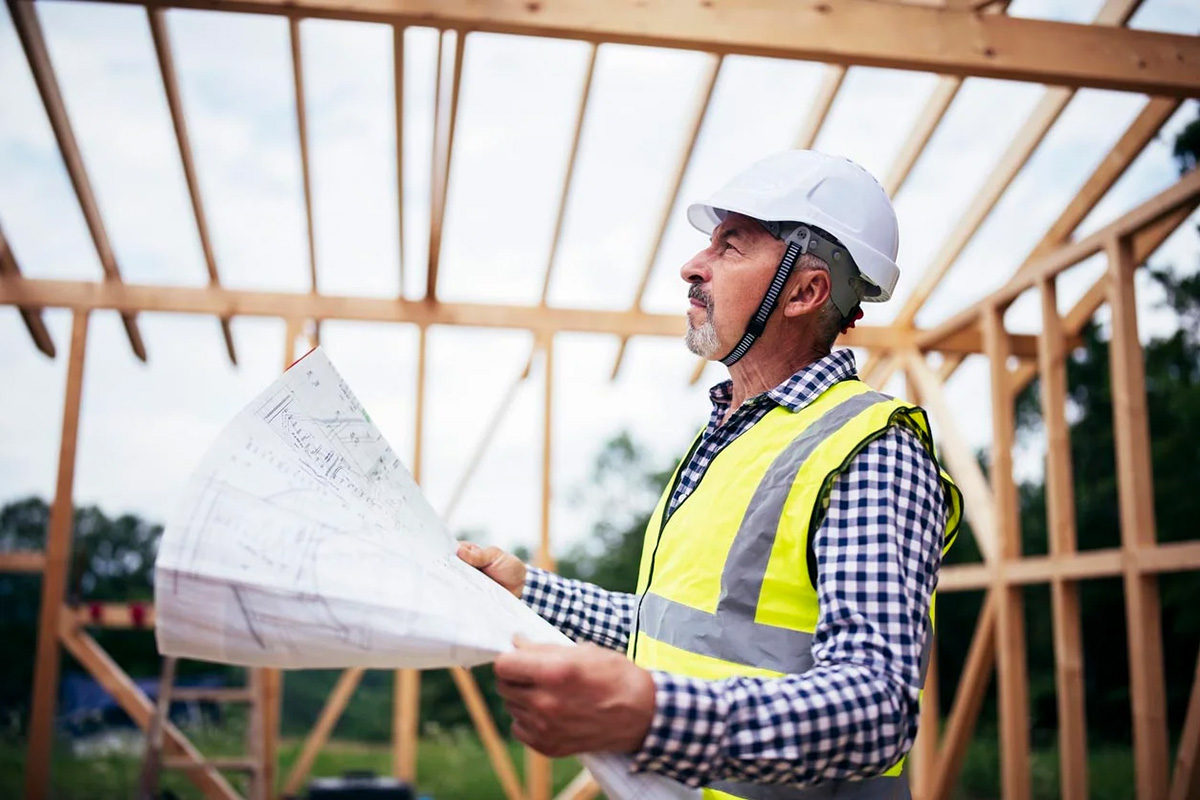Home>Home Maintenance>How To Find A Contractor For Home Repair
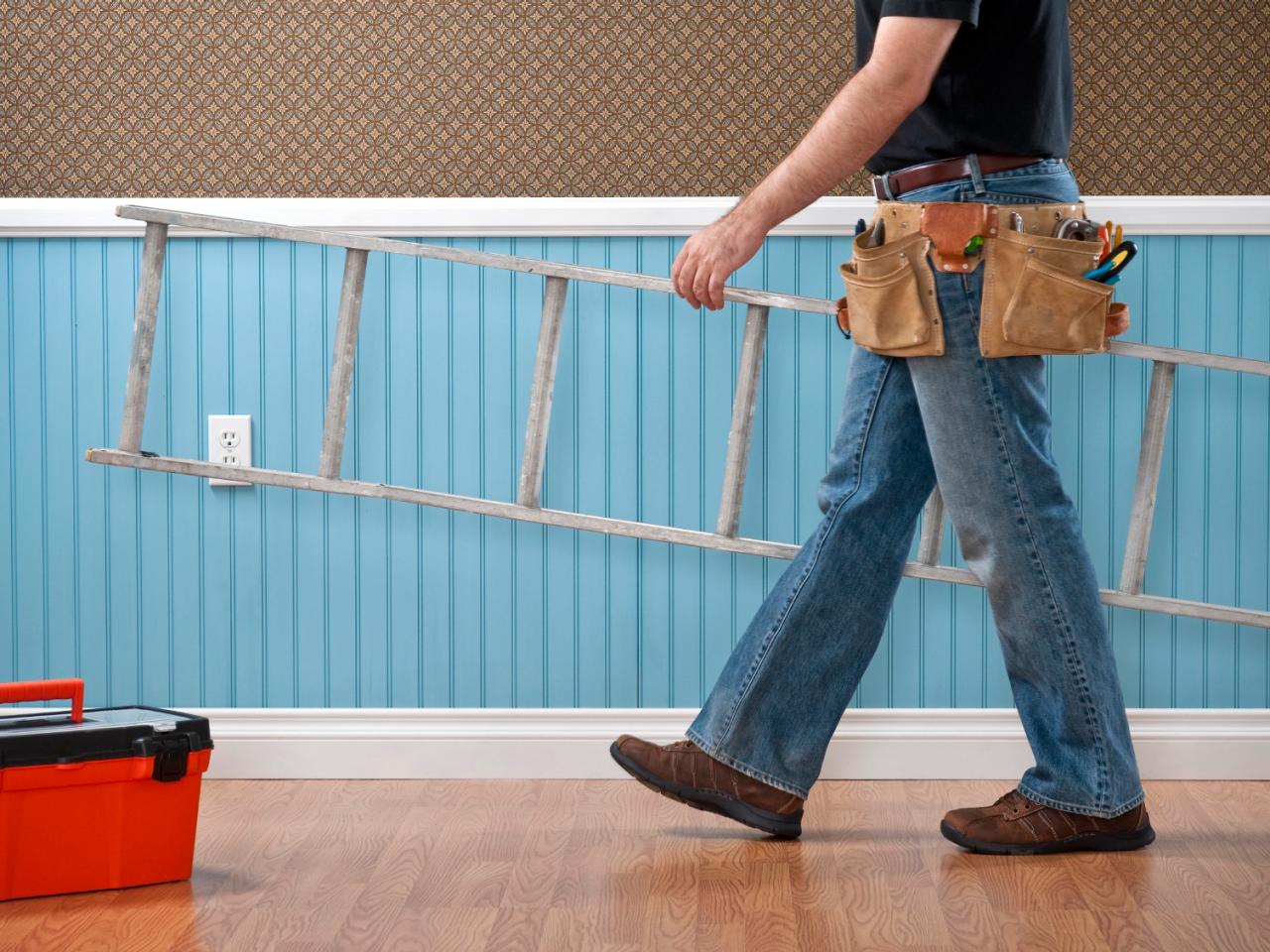

Home Maintenance
How To Find A Contractor For Home Repair
Modified: March 6, 2024
Looking for a reliable contractor for your home maintenance needs? Discover helpful tips and tricks on how to find the best contractor for your home repair projects.
(Many of the links in this article redirect to a specific reviewed product. Your purchase of these products through affiliate links helps to generate commission for Storables.com, at no extra cost. Learn more)
Introduction
When it comes to home repairs, finding a reliable and skilled contractor is essential. Whether you need to fix a leaky roof, repair a damaged wall, or renovate your entire home, hiring the right contractor can make all the difference in the outcome of your project. However, with so many options available, it can be overwhelming to choose the best contractor for your specific needs.
This article will guide you through the process of finding a contractor for your home repairs. From researching and gathering recommendations to interviewing and reviewing past projects, we will provide you with valuable tips and insights to help you make an informed decision.
By following these steps, you will not only find a contractor who is skilled and experienced but also someone who understands your vision and can deliver high-quality results within your budget and timeline.
So, let’s dive in and discover how to find the perfect contractor for your home repair needs.
Key Takeaways:
- Finding the right contractor for home repairs involves thorough research, checking licenses and insurance, reviewing past projects, obtaining multiple bids, and checking references to ensure reliability and professionalism.
- Clear communication, understanding the contract and payment terms, and finalizing the agreement are crucial steps in ensuring a successful and satisfactory home repair project.
Researching and Gathering Recommendations
The first step in finding a contractor for your home repairs is to conduct thorough research and gather recommendations from trusted sources. Here’s what you can do:
- Ask friends, family, and neighbors: Reach out to people you know who have recently had home repairs and ask them about their experiences with contractors. Word-of-mouth recommendations can be invaluable in finding reliable and trustworthy professionals.
- Check online directories: Utilize online directories and review websites to find contractors in your area. Websites like Yelp and Angie’s List provide customer reviews and ratings that can help you gauge the quality of their work.
- Consult professional associations: Look for contractors who are members of professional associations related to the specific trade you require. These associations often have strict membership criteria, ensuring that contractors meet certain standards of professionalism and expertise.
- Seek advice from local building inspectors: Contact your local building department and inquire about any reputable contractors they recommend. Building inspectors often have firsthand knowledge of contractors’ work and can provide valuable insights.
While researching, make sure to consider the size and scope of your project. Some contractors may specialize in certain types of repairs or renovations, so it’s important to find someone who has experience in handling similar projects.
Additionally, pay attention to online reviews and ratings. Look for contractors with consistently positive reviews and high customer satisfaction ratings. Reading about other people’s experiences with a contractor can give you an idea of their professionalism, timeliness, and quality of work.
Once you have compiled a list of potential contractors, it’s time to move on to the next step: checking their licenses and insurance.
Checking Licenses and Insurance
Before hiring a contractor for your home repairs, it’s crucial to verify their licenses and insurance. This step helps ensure that you are working with a legitimate and qualified professional who is adequately protected in case of any accidents or damages. Here’s how you can check licenses and insurance:
- Check for a valid contractor’s license: Many states require contractors to be licensed to perform certain types of work. Visit your state’s licensing board website and search for the contractor’s license. Confirm that it is current and covers the specific type of work you need. This step can provide you with peace of mind, knowing that the contractor has the necessary knowledge and qualifications to complete the job.
- Verify insurance coverage: Contractors should have both liability insurance and worker’s compensation insurance. Liability insurance protects you in case of accidental damage to your property during the project, while worker’s compensation insurance covers any injuries that workers may sustain while working on your property. Request proof of insurance and verify that it is valid and up to date. This way, you can avoid any potential liability or financial burdens in the event of an accident or injury.
- Confirm any additional certifications or accreditations: Depending on the nature of your project, you may also want to check if the contractor has any additional certifications or accreditations. These credentials can serve as proof of their expertise and commitment to professional development.
Remember, hiring an unlicensed or uninsured contractor can be risky. If they do not have the appropriate licenses and insurance, you may be held liable for any damages or injuries that occur during the project. Protect yourself and your property by thoroughly checking the contractor’s licenses and insurance.
Once you have confirmed the contractor’s licensure and insurance, the next step is to review their portfolios and past projects to assess the quality of their work.
Reviewing Portfolios and Past Projects
Reviewing a contractor’s portfolio and past projects is an essential step in the process of finding the right professional for your home repairs. By examining their previous work, you can get a sense of their style, craftsmanship, attention to detail, and ability to handle projects similar to yours. Here’s how you can effectively review portfolios and past projects:
- Request a portfolio: Ask the contractor to provide a portfolio showcasing their previous projects. This can include photographs, before-and-after shots, or even virtual tours of completed works. Look for projects that are similar in scope and complexity to your own, as this will give you a better idea of their capabilities.
- Visit completed projects: If possible, ask the contractor if you can visit some of their past projects in person. This will allow you to see the quality of their work firsthand and assess whether it meets your expectations. Take note of the overall craftsmanship, attention to detail, and the durability of completed projects.
- Speak with past clients: Request references from the contractor and reach out to their past clients. Ask about their experience working with the contractor, the quality of the work, the contractor’s professionalism, and whether they would recommend them for future projects. This firsthand feedback can provide valuable insights and help you gauge the contractor’s reputation.
- Look for consistency: Pay attention to consistency in the contractor’s work. Look for signs of attention to detail, a consistent level of quality across projects, and finishes that align with your preferences. A contractor’s portfolio should demonstrate a breadth of skills and an ability to adapt to different styles and project requirements.
During this process, keep in mind that every contractor may have a unique style or approach to their work. Look for a contractor whose style aligns with your own aesthetic preferences and meets your specific needs.
Once you have thoroughly reviewed the contractor’s portfolios and past projects, the next step is to obtain multiple bids and quotes for your project to ensure fair pricing and value for your money.
Getting Multiple Bids and Quotes
Obtaining multiple bids and quotes from different contractors is crucial to ensure that you are getting a fair price for your home repair project. By comparing bids, you can also gain insight into the scope of work, materials, and timeline for completion. Here’s how you can effectively get multiple bids and quotes:
- Provide detailed project specifications: Clearly communicate your project requirements to each contractor. Provide them with comprehensive and detailed plans, blueprints, or any other documentation that outlines the scope of work. This will ensure that each contractor understands your expectations and can provide accurate bids.
- Request itemized bids: Ask contractors to provide itemized bids that break down the cost of materials, labor, and any additional expenses. This way, you can compare and evaluate each component of the bids to ensure transparency and avoid any hidden costs.
- Ask for a timeline: In addition to the cost, inquire about the estimated timeline for completing the project. This will give you an idea of the contractor’s availability and their ability to meet your desired deadline.
- Consider the balance between price and quality: While it may be tempting to choose the lowest bid, it’s important to balance cost with quality. Remember that exceptionally low bids may indicate a lack of experience or the use of subpar materials. Conversely, higher-priced bids may reflect higher quality materials and craftsmanship. Consider the reputation, portfolio, and past client references of each contractor when evaluating their bids.
- Negotiate if necessary: If you receive bids that are significantly higher or lower than the average, don’t be afraid to negotiate. Communicate your concerns and discuss any discrepancies in the bids. However, be cautious of any contractor who drastically adjusts their bid without a valid explanation.
By obtaining multiple bids and quotes, you can make an informed decision regarding the contractor who offers the best value for your specific project. It’s important to remember that the lowest bid may not always be the best choice, and factors such as reputation, experience, and quality of work should also be considered.
Once you have reviewed and compared multiple bids, the next step is to check references and review past client feedback to ensure the contractor’s reliability and professionalism.
When looking for a contractor for home repair, ask for recommendations from friends and family, check online reviews, and always request references from the contractor before hiring them.
Checking References and Past Client Reviews
Checking references and past client reviews is a crucial step in assessing the reliability and professionalism of a contractor. By reaching out to previous clients and hearing about their experiences, you can gain valuable insights into the contractor’s work ethic, communication skills, and ability to meet expectations. Here’s how you can effectively check references and past client reviews:
- Contact provided references: Reach out to the references provided by the contractor. Ask them about their overall satisfaction with the contractor’s work, the quality of the completed project, and whether they would hire the contractor again in the future. Be sure to inquire about any issues or concerns that arose during the project and how they were resolved.
- Read online reviews: Search for the contractor’s online presence and read reviews on platforms such as Yelp, Google, or their website. Look for patterns in the feedback and consider both positive and negative reviews. Keep in mind that some negative reviews may be outliers or based on subjective opinions, so consider the overall sentiment and the contractor’s response to any negative feedback.
- Check for industry recognition: Look for any industry awards, certifications, or accreditations that the contractor may have received. These acknowledgments can be a testament to their professionalism, expertise, and commitment to quality work.
- Ask for additional photos or testimonials: If available, request additional photos or testimonials from past clients. This can provide a more comprehensive understanding of the contractor’s capabilities and the satisfaction of their previous clients.
When speaking with references or reading reviews, pay attention to the contractor’s communication skills, punctuality, and adherence to the agreed-upon timeline and budget. These factors can greatly impact your experience and the success of your home repair project.
Remember, no contractor is perfect, and it’s natural to come across some negative feedback. What’s important is to assess the overall consensus and evaluate how the contractor handles challenges or resolves issues. Transparency and responsiveness are key indicators of a reliable and professional contractor.
Once you have checked references and reviewed past client feedback, it’s time to interview the top candidates and ask them relevant questions about their experience and approach to your project.
Interviewing and Asking Questions
The interview process is an opportunity for you to directly engage with potential contractors and assess their qualifications, experience, and suitability for your home repair project. By asking the right questions, you can gain valuable insights into their working style, communication, and problem-solving abilities. Here’s how you can effectively interview and ask questions:
- Request a meeting or phone call: Schedule a meeting or phone call with each potential contractor. This allows you to have a conversation and ask questions directly, giving you a better sense of their professionalism and responsiveness.
- Ask about their experience and expertise: Inquire about the contractor’s experience in the specific type of home repair project you need. Ask about similar projects they have completed, the challenges they faced, and how they resolved them. This will help you assess their expertise and problem-solving skills.
- Discuss project timeline and availability: Clarify the contractor’s availability and how long they estimate the project will take. This will help you align their schedule with your expectations and ensure that they can meet your desired timeline.
- Inquire about subcontractors and their supervision: If the contractor plans to use subcontractors for any aspect of the project, discuss how they manage and supervise them. Ask about their relationship with subcontractors and their experience working together, to ensure a smooth and coordinated project execution.
- Ask about permits and compliance: Inquire about any necessary permits and ensure that the contractor is familiar with local building codes and regulations. A knowledgeable contractor will be able to guide you through the permitting process and ensure that the project meets all necessary compliance requirements.
- Clarify communication methods: Discuss how the contractor prefers to communicate throughout the project. Whether it’s through phone calls, emails, or in-person meetings, ensure that their communication style aligns with your preferences and expectations.
- Inquire about warranties and guarantees: Ask about any warranties or guarantees the contractor offers for their work. A reputable contractor should stand behind their craftsmanship and provide assurances for their completed projects.
During the interview, take note of the contractor’s confidence, professionalism, and ability to answer your questions thoroughly. Listen to their responses and assess if their communication style and approach align well with your expectations.
Once you have conducted interviews and gathered the necessary information, it’s time to clarify the scope of work, timeline, and payment terms in the contract before finalizing the agreement.
Clarifying the Scope of Work and Timeline
Clear communication regarding the scope of work and timeline is crucial to ensure that both you and the contractor have a shared understanding of the project expectations and deadlines. By clarifying these details, you can avoid any misunderstandings and set the foundation for a successful home repair project. Here’s how you can effectively clarify the scope of work and timeline:
- Review the project plans and specifications: Go over the project plans and specifications in detail with the contractor. Ensure that both parties have a clear understanding of the work that needs to be done, including any specific details or materials required. Discuss any potential modifications or alternative solutions if needed.
- Create a detailed project outline: Collaborate with the contractor to create a comprehensive project outline that breaks down each phase of the work. Specify the tasks, milestones, and expected completion dates for each stage. This will provide a clear roadmap for the project and help you monitor progress throughout the construction process.
- Discuss any potential challenges or contingencies: Address any known challenges or potential obstacles upfront. This could include issues related to access, existing structures, or unexpected repairs that may arise during the project. By discussing these factors in advance, you can make necessary adjustments to the timeline and avoid delays or additional costs.
- Agree on timelines and deadlines: Set realistic timelines and deadlines for each phase of the project. Consider factors such as weather conditions, availability of materials, and any other external influences that may impact the schedule. Establish clear expectations for key milestones and completion dates, ensuring that they are achievable for both parties.
- Document the agreed scope and timeline: It’s essential to document the scope of work and timeline in writing. This can be done through a detailed contract or a formal agreement that outlines the project details, expectations, and milestones. Having a written document helps protect both parties and serves as a reference throughout the project.
- Regularly communicate and address any changes: As the project progresses, maintain open lines of communication with the contractor. Regularly discuss progress, address any changes or modifications, and ensure that both parties are on the same page. This will help prevent any misalignments and promote a collaborative working relationship.
By clarifying the scope of work and timeline early in the process, you can establish a solid foundation for your home repair project. Clear communication and documentation provide a framework for both you and the contractor to work towards a successful and timely completion.
Once the scope and timeline are set, it’s important to have a thorough understanding of the contract terms and payment structure before finalizing the agreement.
Understanding the Contract and Payment Terms
Before finalizing your agreement with a contractor for your home repair project, it is essential to thoroughly understand the contract and payment terms. The contract serves as a legally binding document that outlines the rights, responsibilities, and expectations of both parties involved. Here are some key points to consider when understanding the contract and payment terms:
- Review the contract thoroughly: Take the time to carefully read through the entire contract. Pay close attention to the scope of work, project timeline, materials to be used, and any specific warranties or guarantees. Ensure that the contract aligns with your expectations and accurately reflects the discussions and agreements made during the pre-contract stages.
- Understand payment schedule: Clarify the payment structure and schedule outlined in the contract. Note any required deposits or down payments, as well as the timeline for progress payments. Make sure you understand when payments are due and what the consequences may be for late or non-payment.
- Discuss change orders: Understand the process for handling any changes or modifications to the original scope of work. Discuss how change orders will be documented, approved, and incorporated into the contract. This will help prevent any confusion or disputes regarding additional costs or delays that may arise due to changes during the project.
- Be aware of lien waivers: Ask the contractor about providing lien waivers from subcontractors and suppliers. A lien waiver is a document that confirms all parties involved have been paid for their work and waives their right to place a lien on your property. This protects you from any potential financial disputes or legal claims arising from unpaid subcontractors or suppliers.
- Ensure proper permits and licenses: Confirm that the contractor is responsible for obtaining all necessary permits and licenses as required by local building codes. Understand whether the cost of permits and any associated fees are included in the contract, or if they will be your responsibility.
- Consider dispute resolution: Take note of any provisions for dispute resolution outlined in the contract. This could include mediation, arbitration, or other methods of resolving conflicts that may arise during the project. Understanding these processes upfront can help mitigate potential disputes in the future.
- Get legal advice if needed: If you have any concerns or questions about the contract, consider seeking legal advice. A lawyer specializing in construction contracts can review the document and provide guidance to ensure that your rights and interests are protected.
It’s essential to have a clear understanding of your contractual obligations, as well as the rights and responsibilities of the contractor. If there are any ambiguities or uncertainties, address them with the contractor before signing the contract.
By carefully reviewing and understanding the contract and payment terms, you can proceed with confidence and enter into a mutually beneficial agreement with the contractor for your home repair project.
Once the contract is finalized, it’s time to move forward and begin the process of completing the home repairs.
Read more: How To Find A Renovation Contractor
Finalizing the Agreement
After conducting thorough research, checking references, and understanding the contract and payment terms, it’s time to finalize the agreement with the chosen contractor for your home repair project. This final step ensures that both parties are in full agreement and ready to move forward. Here’s what you need to do to finalize the agreement:
- Confirm the details with the contractor: Schedule a meeting or conversation with the contractor to go over the finalized scope of work, project timeline, and payment terms. Ensure that both parties are aligned and have a clear understanding of the project’s specifics.
- Sign the contract: Once you are satisfied with the terms, sign the contract. By signing the agreement, you acknowledge and accept the responsibilities and obligations outlined in the document. It is a legally binding contract, so be certain that you have thoroughly reviewed and understood its contents before affixing your signature.
- Retain a copy of the contract: Keep a copy of the signed contract for your records. This document serves as a point of reference throughout the project and can help in case of any disputes or clarifications needed in the future.
- Arrange the initial payment: Fulfill the initial payment obligation as stated in the contract. This could involve making a deposit or down payment, depending on the agreed-upon payment schedule. Ensure that you have a clear understanding of when and how the subsequent payments will be made as the project progresses.
- Establish communication channels: Set up regular communication channels with the contractor. This could involve exchanging contact information, designating a primary point of contact, or discussing preferred communication methods such as phone calls, emails, or in-person meetings. Open and frequent communication is essential to ensure a smooth and successful project.
- Review project progress: Throughout the project, regularly review the progress and milestones with the contractor. Address any concerns or changes promptly and maintain open and transparent communication. This will help ensure that the project stays on track and meets your expectations.
- Maintain a positive working relationship: Foster a positive and professional working relationship with the contractor. Treat them with respect and professionalism, and expect the same in return. Openly discuss any issues or concerns that may arise during the project, and work together to find mutually agreeable solutions.
By finalizing the agreement with the contractor, you establish a solid foundation for a successful home repair project. Clear communication, adherence to the contract terms, and maintaining a positive working relationship are key factors that contribute to a smooth and satisfactory project experience.
Keep in mind that unexpected challenges or changes may arise during the project. By maintaining open communication and collaborating with the contractor, you can navigate these challenges together and achieve the desired results for your home repairs.
Now that the agreement is finalized, it’s time to embark on the journey of transforming your home and bringing your vision to life.
Frequently Asked Questions about How To Find A Contractor For Home Repair
Was this page helpful?
At Storables.com, we guarantee accurate and reliable information. Our content, validated by Expert Board Contributors, is crafted following stringent Editorial Policies. We're committed to providing you with well-researched, expert-backed insights for all your informational needs.
